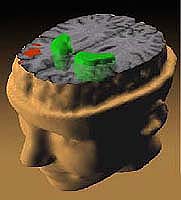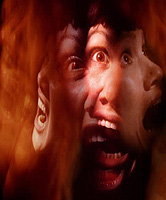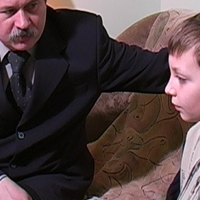Diseases such as schizophrenia are called endogenous, since it is very difficult to determine in explicitly the internal nature and the cause of the sudden disease. Nevertheless, these diseases are developing according to well-known laws and plans, and there are certain medical programs and techniques for them.
Content
It should include not only a qualified clinical assessment of the mental status of the history of life and illness of the patient, but also a comprehensive study of the nervous system and other organs and organism systems. It is important to use all the possibilities of modern medicine, including laboratory biochemical analysis and instrumental research methods.
Significant in the process of recognition of schizophrenia or its exception is occupied by psychological diagnosis: neuropsychological, pathopsychological, diagnosis of the type and structure of the patient.
It is also necessary to remember that the risk group for this disease is presented by persons with hereditary exhaustion and schizoid type of personality.
Professional assistance to schizophrenia patients should be as early as possible - to be timely and high-quality, because in case of delay in the start of treatment, schizophrenia symptoms become more pronounced and sustainable.
The main reason for the relapse of schizophrenia is the poor cooperation of the doctor and the patient and, as a result, non-compliance with the patient of the recommended treatment regimen. Therefore, the formation of cooperation is the primary task of a psychiatrist.
The Union of the doctor and the patient should be built on the basis of trusting relationships, professionalism and sincere desire of a doctor to understand their patient. To work out cooperation are very important:
Medical personnel providing assistance to schizophrenia must respect the patient with respect, to form that atmosphere in which there is no place for fear or tension.
4. Safety and complexity of treatment
It is necessary to know which biological methods of therapy, certain drugs, methods of psychotherapy can be used, and which damage the patient's body will damage. A comprehensive study of various systems, which was discussed above, is also necessary for the forecast of the occurrence of certain side effects that must be minimized. Periodic control of treatment of treatment should be the usual phenomenon in the process of treating schizophrenia.
Preferably, the use of methods and medicines that previously proved their effectiveness in patients with schizophrenia.
It is important to conduct regular psychological and neurophysiological studies (electroencephalogram caused by brain potentials, duplex scanning of brain vessels, etc.), evaluate the activity of the cardiovascular system, observe the dynamics of hormonal and immunological indicators, the results of blood and urine tests, biochemical liver tests, protein, carbohydrate and fat metabolism.
Thus, the correction of violations of the vegetative nervous system or the elimination of immunodeficiency significantly increases the effectiveness of therapy.
During supporting therapy, patient schizophrenia should be periodically observed by a neurologist, an endocrinologist, cardiologist and a gastroenterologist (at least once every six months).
 Each new aggravation of schizophrenia impairs the disease forecast and forms a tendency to the emergence of resistant states.
Each new aggravation of schizophrenia impairs the disease forecast and forms a tendency to the emergence of resistant states.
The recurrence of mental disorder contributes:
-
Failure to comply with therapy mode
-
aggravation of concomitant diseases of other organs
-
Infectious diseases
-
Psychotracting situations
-
Alcohol or Drug Abuse
-
Reduced socio-labor status
-
pronounced side effects of therapy.
It is necessary to carefully analyze the reasons for the relapse of schizophrenia in order to effectively stop the aggravation of the disease and predict its further flow. To relieve relapse, it is most often necessary to increase the dose of this drug, which has proven its effectiveness early.
6. Training of the patient and his relatives
Sociotherapy and family therapy must be a mandatory component of the rehabilitation of schizophrenia patient, as the level of cooperation between the psychiatrist, patient and his relatives is noticeably raised.










